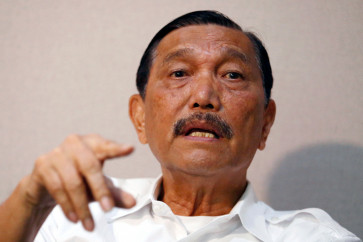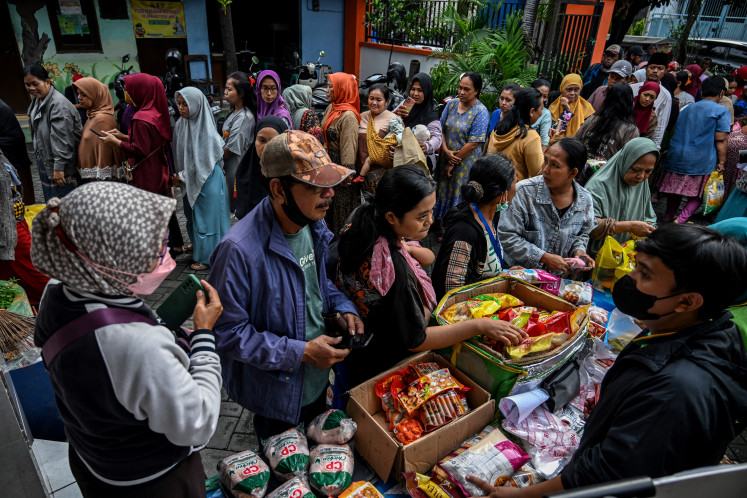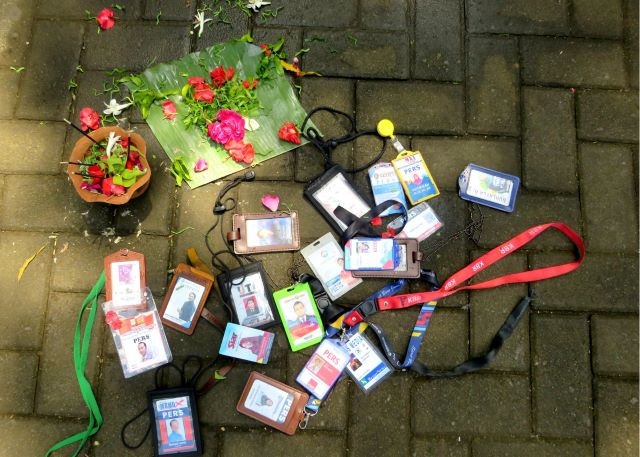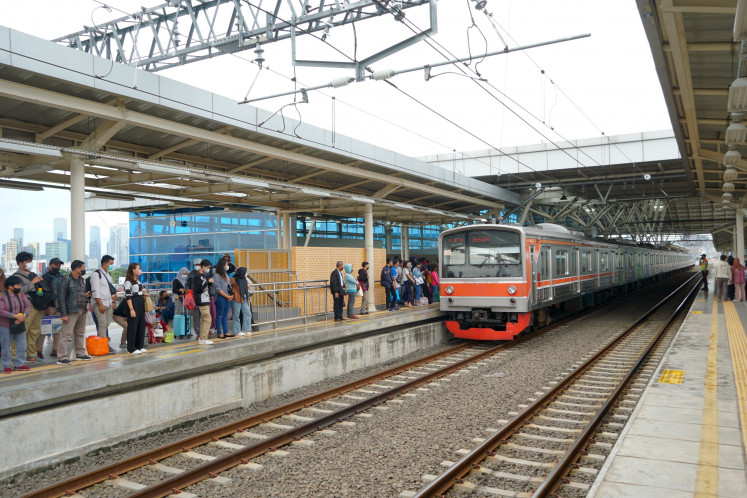Terrorism bill needs to balance security and civil rights: Experts
Change Size
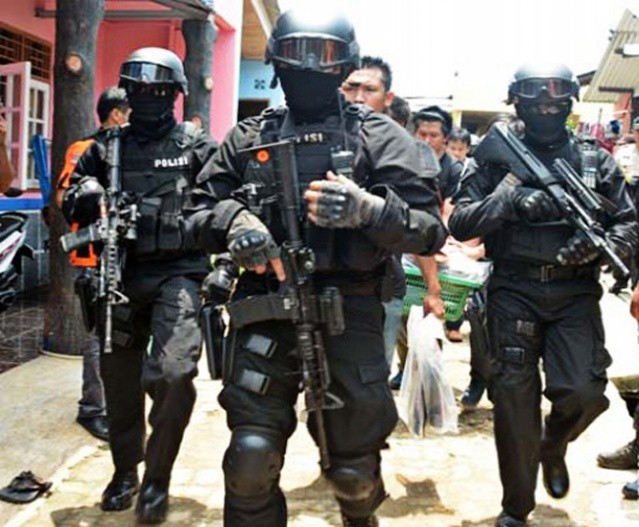 CD
Members of the National Police’s Densus 88 counterterrorism unit escort officials in possession of evidence in South Tangerang, Banten, in March 2015.
(Muhammad Iqbal/Muhammad Iqbal)
CD
Members of the National Police’s Densus 88 counterterrorism unit escort officials in possession of evidence in South Tangerang, Banten, in March 2015.
(Muhammad Iqbal/Muhammad Iqbal)
H
uman rights watchdogs have voiced their objections to what they claim as efforts by security authorities to sacrifice civil liberties in the name of national security in the draft revision to the Terrorism Law.
The government has to ensure that it upholds the principles of human rights in its efforts to secure the country, said Setara Institute deputy chairman Bonar Tigor Naipospos.
Security officials should always protect citizens’ human rights, without exception or discrimination, Bonar said.
"Even though they are terrorist suspects, the legal process should still refer to the prevailing laws," Bonar told thejakartapost.com recently.
The current bill emphasizes preemptive measures that would enable officials to take action against terrorist suspects.
Among the controversial points is Article 28 of the bill, which grants police the authority to extend a detention period from seven days up to 30 days for people linked to a terrorist act, despite having yet to be named a suspect.
According to Bonar, the extension period has the potential to violate law and human rights principles, as the Criminal Code (KUHP) states that a person who is arrested with preliminary evidence can only be detained for one day or 24 hours.
Meanwhile, Article 31 allows the police to wiretap people suspected of having links to terrorist networks, by only attaining permits from the Communications and Information Ministry. Bonar said the article was irrelevant as only state courts had the formal authority to declare the legitimacy of surveillance.
"Surveillance also has the potential to increase subjectivism and abuse of power," Bonar said.
Meanwhile, Setara Institute researcher Aminudin Syarif said the broader definition of a threat of violence in the draft revision also had the potential to spark overcriminalization.
"Accountability of the officials regarding this point is important for us to monitor their counterterrorism efforts," Aminudin said.
Separately, Human Rights Working Group (HRWG) executive director Rafendi Djamin said the government had the right to curb the civil liberties of its citizens during civil emergency status, which gives the state jurisdiction to conduct surveillance for security purposes.
Preemptive measures such as surveillance, a broader definition of a threat of violence, including arrest or interrogation based on reasonable suspicions are all susceptible to abuse of power, leading to violations of even non-tradable rights such as civil liberties, Rafendi said.
"[However] there should be laws that uphold human right principles. There is no excuse that can be made or justification regarding this," Rafendi said. (bbn)


